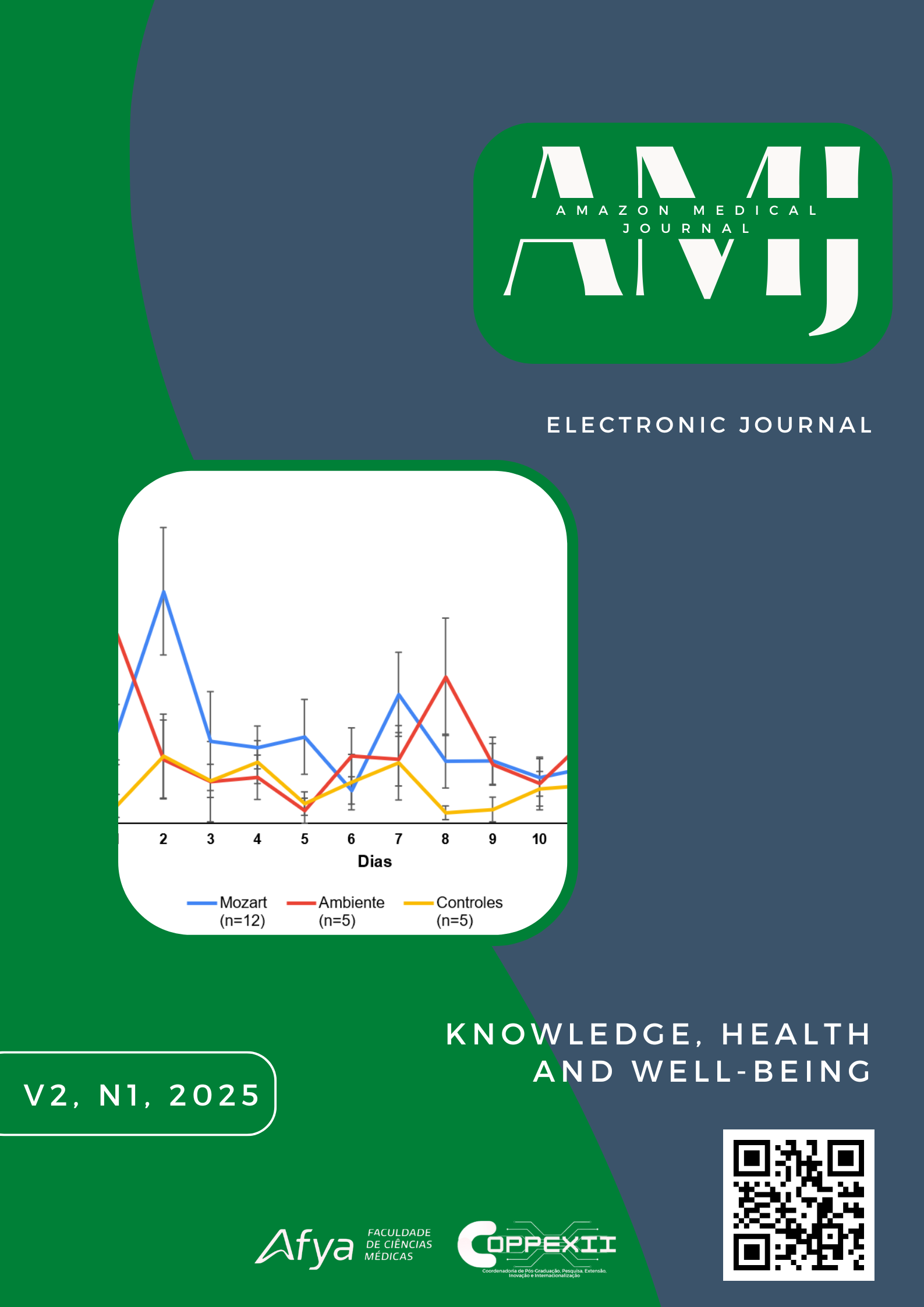The Need for Studies on Biopsychosocial Impacts in Healthcare Professionals After the Loss of the First Patient: A Systematic Review
Keywords:
Palliative Care, Death, Healthcare Professionals, Humanization, GriefAbstract
Introduction: Understanding death as a natural aspect of life is essential in the training of healthcare professionals. However, the lack of emphasis on palliative care (PC) in academic curricula has led to significant gaps in preparing students and professionals to cope with patient death. This deficiency generates biopsychosocial impacts, including emotional and professional stress. Objective: To critically analyze the importance of palliative care education in addressing first patient loss and the biopsychosocial impacts faced by healthcare professionals. Methods: An integrative review was conducted to analyze studies published in the last 10 years, in English and Portuguese, focusing on biopsychosocial impacts following the loss of the first patient and the importance of PC education. Electronic databases such as PubMed, Scopus, and Web of Science were utilized, with inclusion criteria addressing the relevance of the topic. Results: The lack of effective palliative care approach in Brazilian academic curricula revealed significant repercussions, including difficulties in managing patient loss. This triggered instances of stress, depression, anxiety, and Burnout Syndrome among healthcare students and professionals. The lack of preparedness manifested in the limited perception of PC, often reduced to relieving physical suffering, neglecting its holistic approach. Conclusion: Integrating palliative care into healthcare curricula is crucial. This not only equips professionals to cope with patient death but also enhances their ability to deliver compassionate and holistic care. Inadequate instruction has proven detrimental to the mental health of professionals and the quality of care provided. Investing in PC education can transform not only clinical practice but also the emotional resilience of professionals, resulting in a more humane and effective healthcare system.
References
World Health Organization. Constitution of the World Health Organization. 1995.
Maria das Graças Mota Cruz de Assis Figueiredo, Rita de Cássia M. T. Stano. O estudo da morte e dos cuidados paliativos: uma experiência didática no currículo de medicina. Rev Bras Educ Med. 2013 Aug 19;37(2):298–306.
Correia DS, Taveira M das GMM, Marques AMVFA, Chagas RRS, Castro CF, Cavalcanti SL. Percepção e Vivência da Morte de Estudante de Medicina durante a Graduação. Rev Bras Educ Med. 2020;44(1).
Freitas ED de. Manifesto pelos cuidados paliativos na graduação em medicina: estudo dirigido da Carta de Praga. Revista Bioética. 2017 Dec;25(3):527–35.
Brito PCC, Sobreiro IM, Atzingen DANC von, Silva JV da, Mendonça AR dos A. Reflections on the Terminality of Life with Undergraduate Medical Students. Rev Bras Educ Med. 2020;44(1).
Ho CY, Kow CS, Chia CHJ, Low JY, Lai YHM, Lauw SK, et al. The impact of death and dying on the personhood of medical students: a systematic scoping review. BMC Med Educ. 2020 Dec 28;20(1):516.
Toh RQE, Koh KK, Lua JK, Wong RSM, Quah ELY, Panda A, et al. The role of mentoring, supervision, coaching, teaching and instruction on professional identity formation: a systematic scoping review. BMC Med Educ. 2022 Jul 8;22(1):531.
Testoni I, Iacona E, Corso C, Pompele S, Dal Corso L, Orkibi H, et al. Psychology Students’ Perceptions of COVID-19 in a Death Education Course. Front Public Health. 2021 Apr 16;9.
Nugraha D, Salamah S, Luke K, Wibowo ZK, Witarto AP, Deswima C, et al. Evaluation of Health-Related Quality of Life and Mental Health in 729 Medical Students in Indonesia During the COVID-19 Pandemic. Medical Science Monitor. 2023 Jan 19;29.
Castro AA, Taquette SR, Marques NI. Cuidados paliativos: inserção do ensino nas escolas médicas do Brasil. Rev Bras Educ Med. 2021;45(2).
Malta R, Rodrigues B, Priolli DG. Paradigma na Formação Médica: Atitudes e Conhecimentos de Acadêmicos sobre Morte e Cuidados Paliativos. Rev Bras Educ Med. 2018 Jun;42(2):34–44.
Witter S, Thomas S, Topp SM, Barasa E, Chopra M, Cobos D, et al. Health system resilience: a critical review and reconceptualisation. Lancet Glob Health. 2023 Sep;11(9):e1454–8.
Esplen MJ, Wong J, Vachon MLS. Supporting Resilience and the Management of Grief and Loss among Nurses: Qualitative Themes from a Continuing Education Program. The Korean Journal of Hospice and Palliative Care [Internet]. 2022 Jun 1;25(2):55–65. Available from: http://www.kjhpc.org/journal/view.html?doi=10.14475/jhpc.2022.25.2.55
Shanafelt TD, Mungo M, Schmitgen J, Storz KA, Reeves D, Hayes SN, et al. Longitudinal Study Evaluating the Association Between Physician Burnout and Changes in Professional Work Effort. Mayo Clin Proc. 2016 Apr;91(4):422–31.
Boaventura JR, Pessalacia JDR, Ribeiro AA, de Souza FB, da Silva Neto PK, Marinho MR. Palliative care in the pre-hospital service in Brazil: experiences of health professionals. BMC Palliat Care. 2022 Dec 4;21(1):4.
Hermes HR, Lamarca ICA. Cuidados paliativos: uma abordagem a partir das categorias profissionais de saúde. Cien Saude Colet. 2013 Sep;18(9):2577–88.
Braz MS, Franco MHP. Profissionais Paliativistas e suas Contribuições na Prevenção de Luto Complicado. Psicologia: Ciência e Profissão. 2017 Jan;37(1):90–105.
Li WW, Chhabra J, Singh S. Palliative care education and its effectiveness: a systematic review. Public Health. 2021 May;194:96–108.
Downloads
Published
How to Cite
Issue
Section
License
Copyright (c) 2025 Amazon Medical Journal

This work is licensed under a Creative Commons Attribution 4.0 International License.


